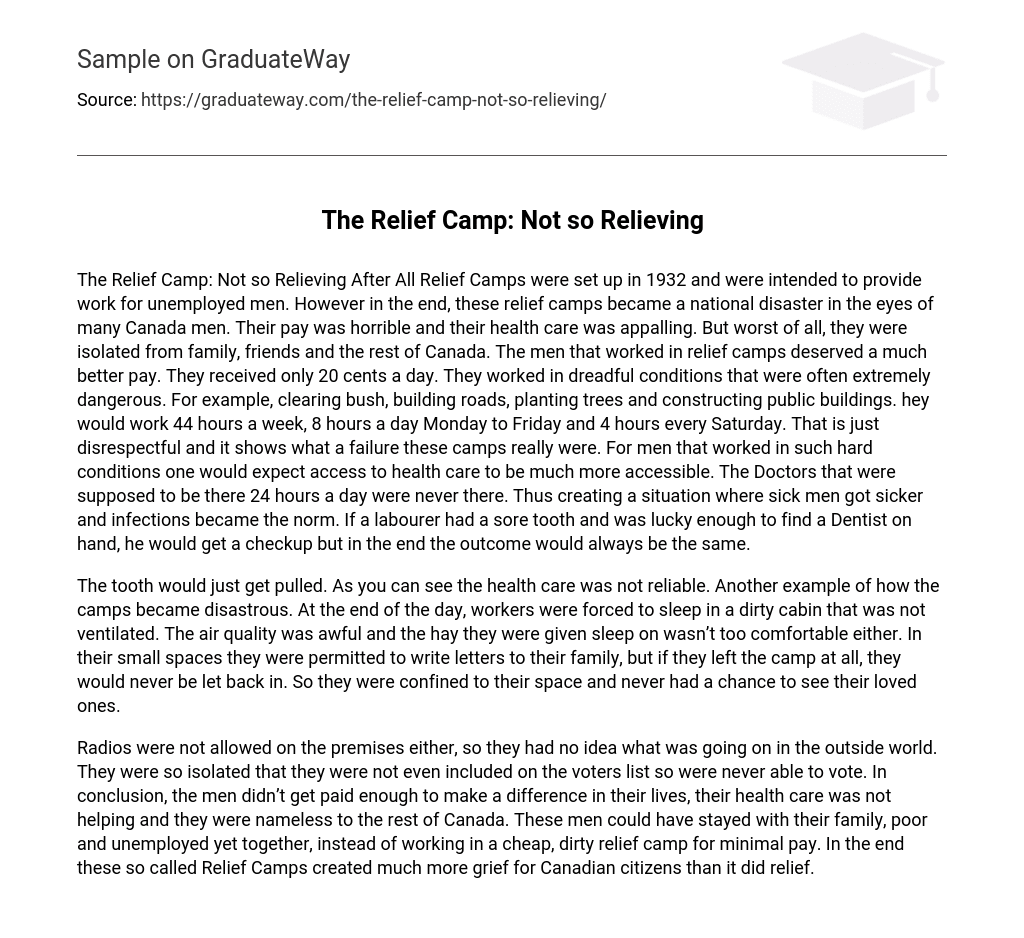The Relief Camp: Not so Relieving After All Relief Camps were set up in 1932 and were intended to provide work for unemployed men. However in the end, these relief camps became a national disaster in the eyes of many Canada men. Their pay was horrible and their health care was appalling. But worst of all, they were isolated from family, friends and the rest of Canada. The men that worked in relief camps deserved a much better pay. They received only 20 cents a day. They worked in dreadful conditions that were often extremely dangerous. For example, clearing bush, building roads, planting trees and constructing public buildings. hey would work 44 hours a week, 8 hours a day Monday to Friday and 4 hours every Saturday. That is just disrespectful and it shows what a failure these camps really were. For men that worked in such hard conditions one would expect access to health care to be much more accessible. The Doctors that were supposed to be there 24 hours a day were never there. Thus creating a situation where sick men got sicker and infections became the norm. If a labourer had a sore tooth and was lucky enough to find a Dentist on hand, he would get a checkup but in the end the outcome would always be the same.
The tooth would just get pulled. As you can see the health care was not reliable. Another example of how the camps became disastrous. At the end of the day, workers were forced to sleep in a dirty cabin that was not ventilated. The air quality was awful and the hay they were given sleep on wasn’t too comfortable either. In their small spaces they were permitted to write letters to their family, but if they left the camp at all, they would never be let back in. So they were confined to their space and never had a chance to see their loved ones.
Radios were not allowed on the premises either, so they had no idea what was going on in the outside world. They were so isolated that they were not even included on the voters list so were never able to vote. In conclusion, the men didn’t get paid enough to make a difference in their lives, their health care was not helping and they were nameless to the rest of Canada. These men could have stayed with their family, poor and unemployed yet together, instead of working in a cheap, dirty relief camp for minimal pay. In the end these so called Relief Camps created much more grief for Canadian citizens than it did relief.





